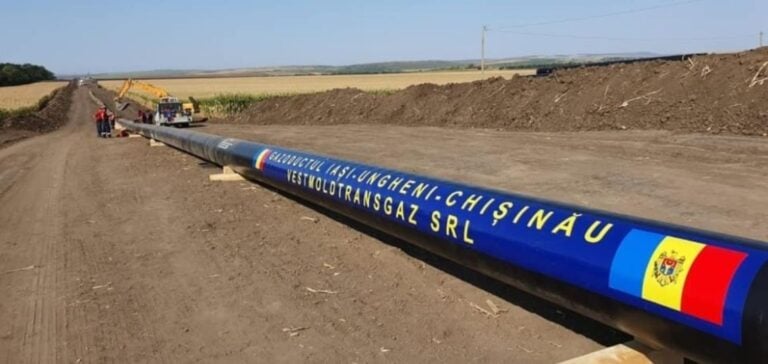Since Gazprom suspended Russian gas deliveries in early January, residents of several Moldovan villages connected to the Transnistrian network find themselves in a precarious situation. Cocieri, enclosed in separatist territory but administered by Moldova, illustrates the challenges the country faces in diversifying its energy sources while keeping costs manageable.
The situation is particularly tense for residents like Valera Alexandru Sava, a war veteran. In his home, only the ground floor is heated with an old wood stove. “We manage, but it’s difficult,” he explains, pointing to the soaring energy bills elsewhere in the country as a looming concern.
An Energy Network Inherited from the Soviet Era
Villages directly connected to the Transnistrian network, such as Cocieri, still heavily rely on infrastructure dating back to the Soviet Union. The Moldovan government is working to connect these isolated areas to the national grid. Ivan Mitcul, secretary of Cocieri’s town hall, emphasizes that building a pipeline across the Dniester River represents a “massive investment,” both technically complex and costly.
However, this initiative faces strong local resistance. In the neighboring locality of Copanca, residents protested against the grid connection works, fearing the costs associated with electricity supplied by Romania, Moldova’s main partner in alleviating the crisis.
The Social and Economic Impact of the Crisis
Power and heating outages severely disrupt daily life. In Varnita, where streets plunged into darkness evoke a return to the Stone Age, shops operate under the light of mobile phones. Valentina Gora, a bread seller, voices shared frustration: “We want to join Europe, but not at this cost.”
The crisis also underscores the social and geopolitical fractures pulling Moldova in different directions. While authorities accuse Moscow of destabilization, residents in affected areas seek practical solutions regardless of political considerations.
An Uncertain Energy Future
The Moldovan government, led by pro-European President Maia Sandu, has diversified imports, but these efforts have doubled household energy bills. Despite criticism, officials like Deputy Prime Minister Oleg Serebrian stress the need to reduce dependency on Russian gas.
For many Moldovans, however, this energy shift entails sacrifices. Sergiu Sava, a security officer, summarizes the general sentiment: “Better to be without gas and electricity than at war. But how long can we hold on?”






















